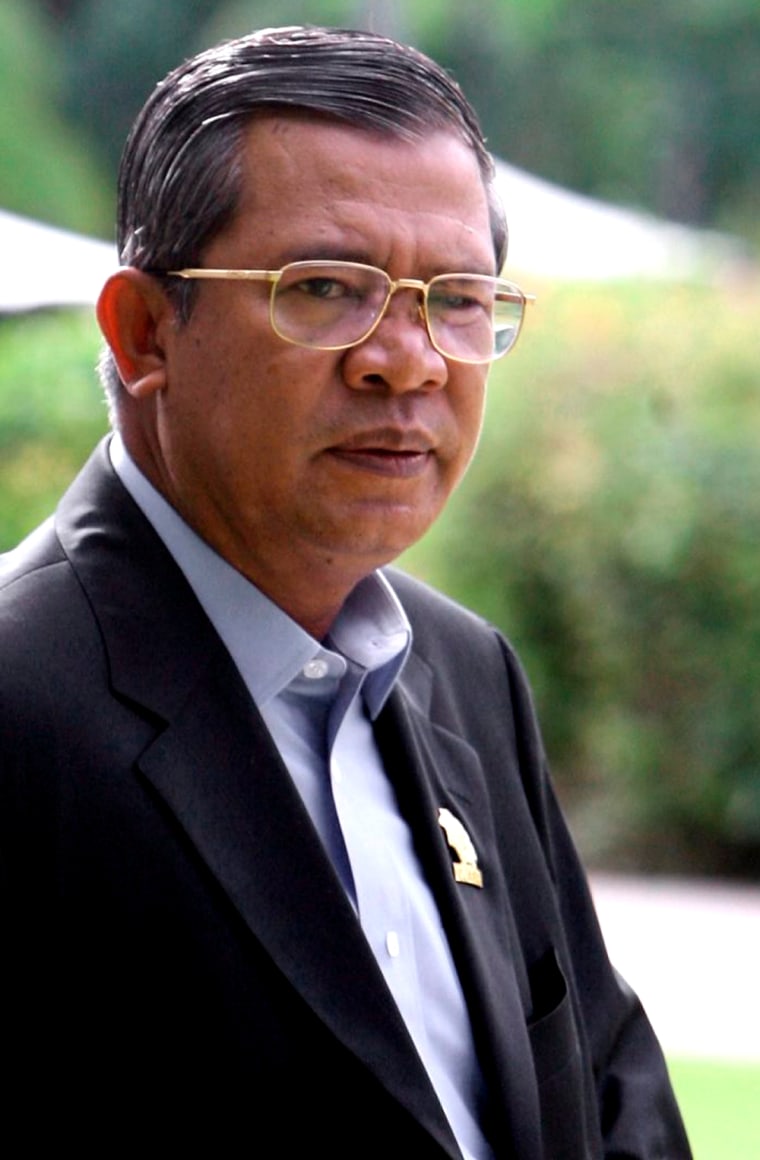Top government officials and tycoons in Cambodia, including the prime minister's relatives, are illegally cutting down the country's dwindling forests while foreign donors do little to stop them, an environmental group said Friday.
Cambodia has the largest remaining lowland evergreen forest in mainland Southeast Asia, home to endangered wildlife, including elephants, tigers and the Asiatic black bear.
In a 95-page report, London-based Global Witness documented accusations of corruption and illegal logging under the eyes of foreign donors who annually provide some $600 million in aid — equivalent to about half the national budget.
"Logging is part of a massive asset-stripping for the benefit of a small kleptocratic elite" that includes powerful businessmen, senior military and police officers, and ministers linked to Prime Minister Hun Sen, said Simon Taylor, director of Global Witness.
A government spokesman, Khieu Kanharith, did not respond to Associated Press efforts to reach him for comment. Two individuals cited in the report as among the timber kingpins denied wrongdoing.
'Mafia' alleged
Taylor said the destruction has further impoverished Cambodians living in the countryside by depriving them of forest products, including food and medicine, as well as vital water sources.
"The forests of Cambodia have been ransacked over the past decade by this mafia with little or no benefit flowing down to the ordinary people," Taylor said.

The Consultative Group on Cambodia — which includes donors Australia, the European Union, Japan, the United States and the World Bank — has voiced concern for years over Cambodia's forestry sector.
However, Global Witness said they did little to pressure the government to adopt genuine reforms.
"The donors have failed. They are basically spineless. The message that Hun Sen gets from the donors is that they don't really give a damn," Taylor said.
Under criticism, the Cambodian government in 2002 suspended logging concessions to foreign and local companies that blatantly stripped forests.
But the report said illegal logging continues through "economic land concessions" that cut down forests to make way for plantations, with the timber sold in contravention of a 2001 law. Permits and licenses are issued by government officials to friends, the report says.
Bodyguards also traffickers?
Brigade 70, the reserve force for Hun Sen's personal bodyguard unit, is also the country's timber transportation and trafficking service, according to Global Witness, which has monitored Cambodia's forests for the past 12 years and was expelled from the country in 2005.
Ty Sokun, director-general of the Forestry Administration and an adviser to Hun Sen, described Global Witness staffers as "insane, unprofessional people" with no knowledge of forestry, and said the report was deceptive. He said Cambodia has increased its forest cover in recent years.
However, the U.N. Food and Agriculture Organization estimates the country lost 29 percent of its primary tropical forests between 2000 and 2005, and most foreign experts agree deforestation continues at an alarming rate.
The prime minister's cousin, Dy Chouch, is among the leaders of the country's most powerful logging syndicate, according to Global Witness. That company illegally takes timber from Prey Long, an evergreen forest in the central province of Kompong Thom, under the guise of a rubber plantation development scheme, the report said.
But another top figure in the company, Seng Kok Heang, said it had permits to cut and transport logs out of Prey Long, having won a concession from the government to turn 15,320 acres into a rubber plantation. He called the accusations "unacceptable."